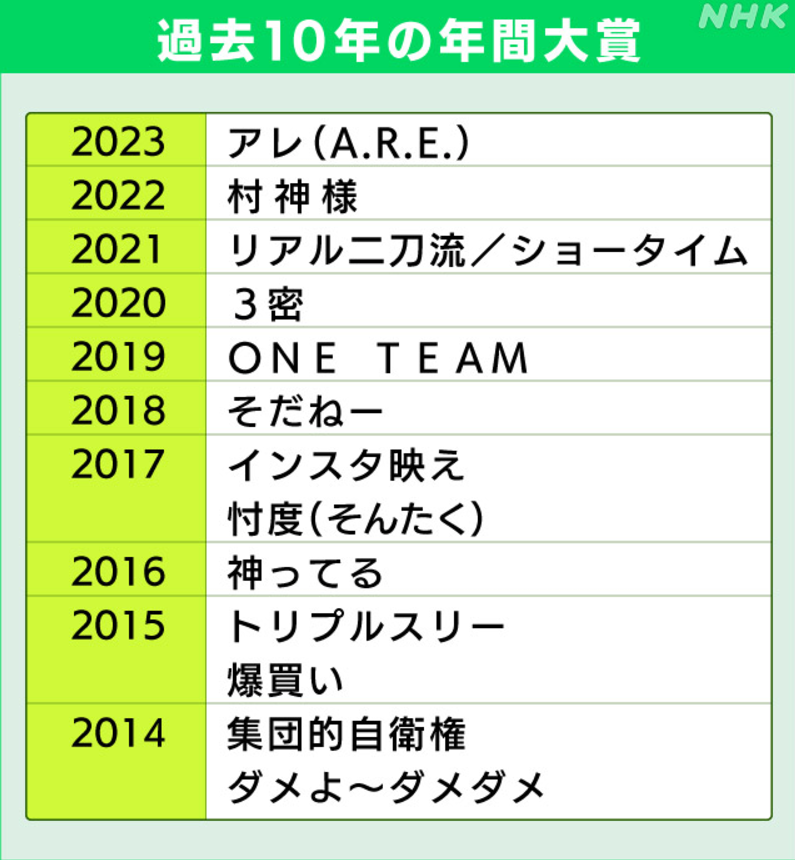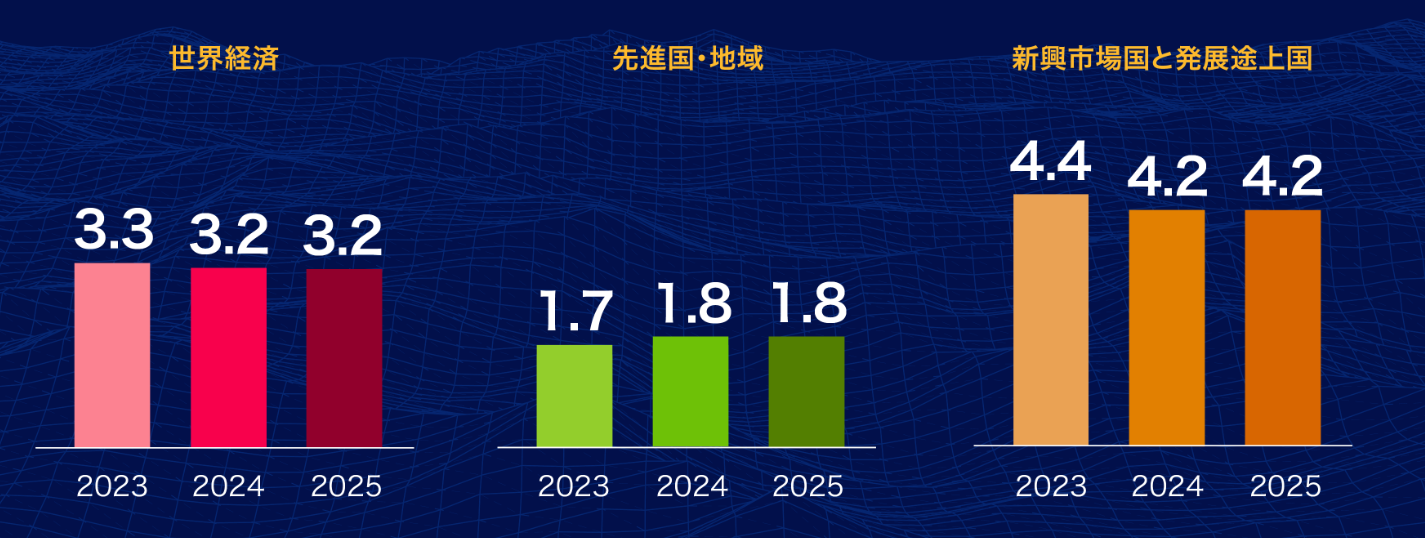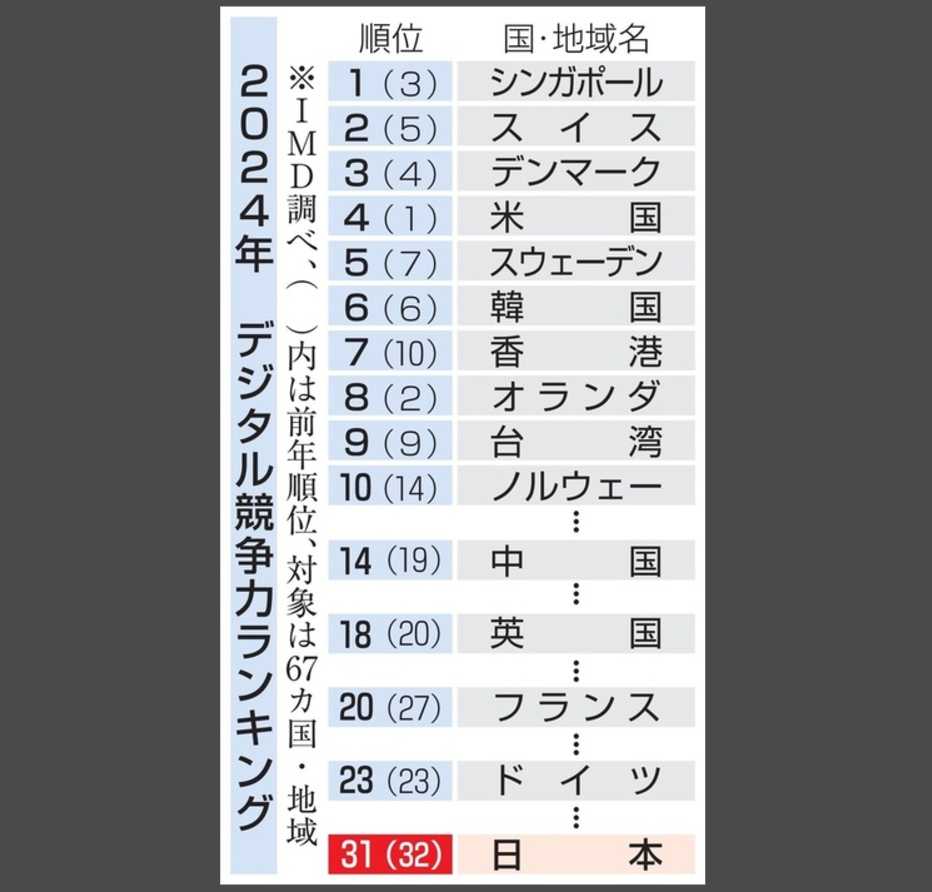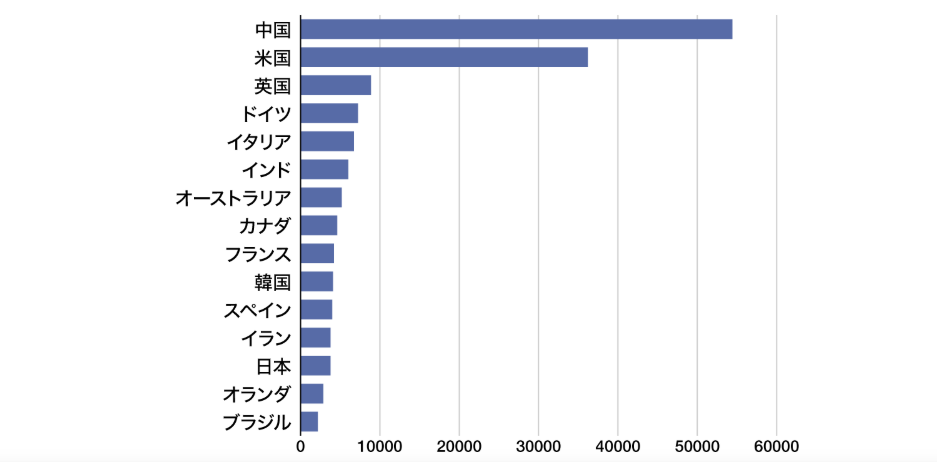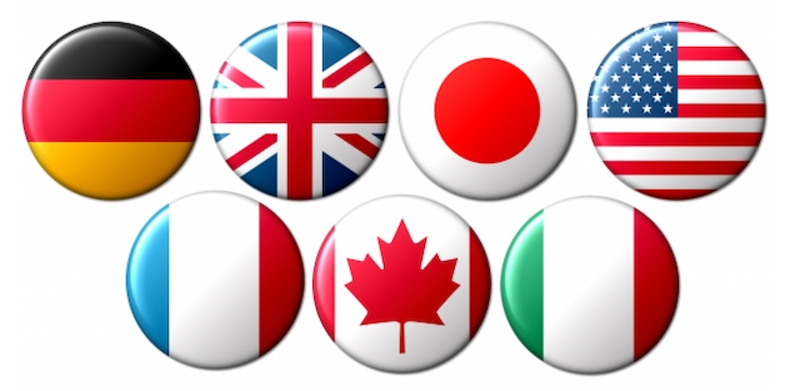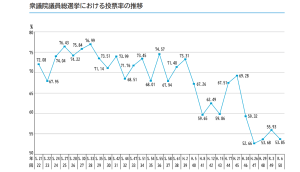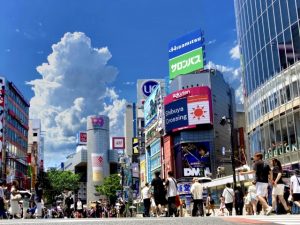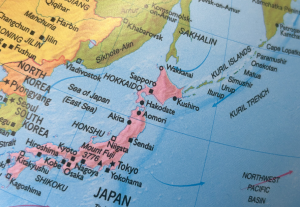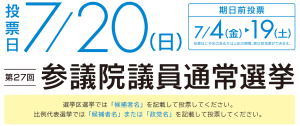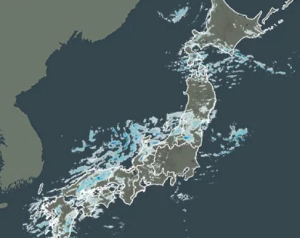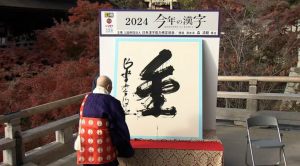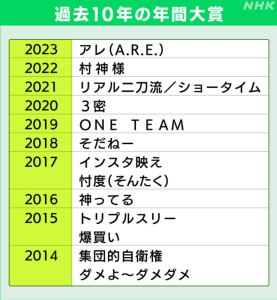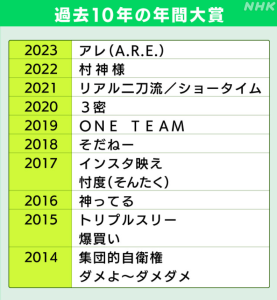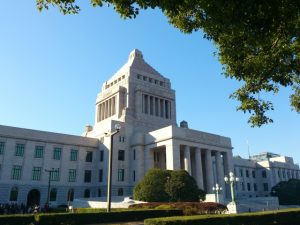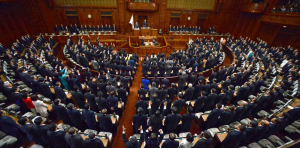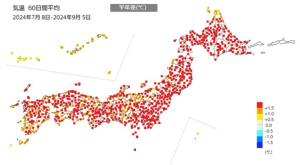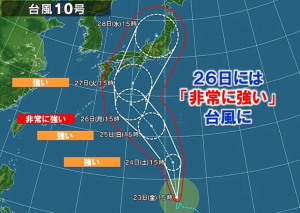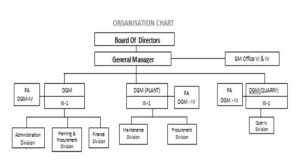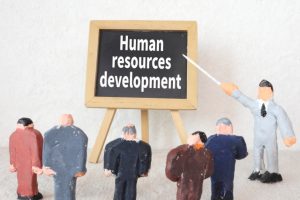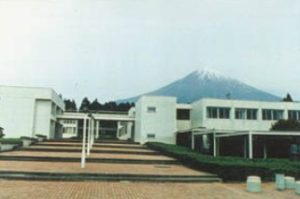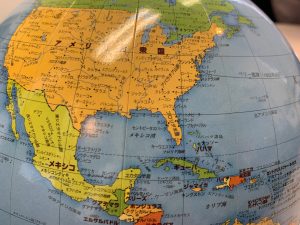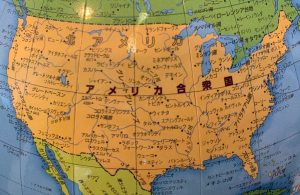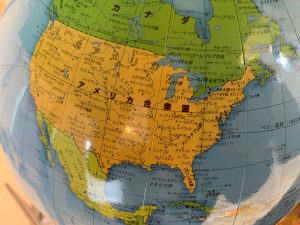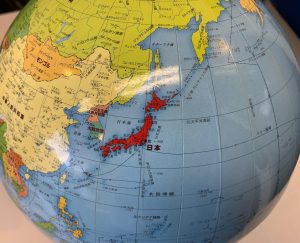Re: A news item and subject which I just want to check out (157) December 6, 2024
Warm days continue, even though it is December. According to the Meteorological Agency, average temperature in autumn (from September to November) this year in Japan was 1.97 degrees higher than usual. It was much higher than last year (1.39 degrees higher) that was the highest since the start of statistics in 1898, and the hottest autumn for three consecutive years. The said agency gives a warning that the high temperatures in autumn are “abnormal weather” and if global warming will progress, the likelihood of experiencing high temperatures like this will increase.
Next, “Buzzword of the Year Award” given to words and topics reflecting this year’s social trends was announced on December 2. And the word chosen for the award was “futehodo” shortening drama “extremely inappropriate!”. I have never heard of this word and had no idea what it was about, because I have not watched this drama. Incidentally, what I knew among top ten was “slush fund issue”, “new banknotes”, “50-50” and “white case”. I realized that I was “naive”.
And the Yomiuri Shimbun is inviting to submit “your top ten news” again this year. Big earthquake with seismic intensity of 7 occurred in Noto, Ishikawa prefecture right at the start of the New Year, and big elections were held in countries around the world as it was called an election year. In particular, Mr. Trump has returned to the presidency of the United States and this year will be remembered as a year of significant turning point in world history. Incidentally, “50-50”, the first in MLB, achieved by Mr. Ohtani was one of the few bright news this year.
■■What I have recently thought and focused on:
■The World Economic Outlook by IMF:
The G20 Summit was held in Rio de Janeiro, Brazil from 18 to 19 November, and Prime Minister Ishiba also attended. G20 accounts for 85 % of world GDP. This summit started with the aim of stabilizing the global economy, triggered by the financial crisis in 2008 (Lehman Shock). IMF published in October this year that “the growth outlook for the G20 is the weakest in decades”. According to IMF, real economic growth rate for the G20 is 3.4 % in 2024, and will decrease to 3.2 % next year and to 3.0 % in 2029. This growth rate is lower than the average from 2000 to 2019 (3.7 %) before corona. In particular, it says that the economic slowdown of emerging countries stands out and among them, the growth rate in China will decline from 4.8 % in 2024 to 3.3 % in 2029. And even in advanced countries, in addition to slow productivity growth and worsening of the declining birthrate and aging population with Japan at the top of the list, there are concerns about the impact on the global economy due to protectionist policies by Trump administration in the United States.
■Several indicators showing the decline in international competitiveness and national power in Japan:
1) In international comparisons, “labor productivity” and “job satisfaction” are low in Japan:
According to Gallup (American research firm), while 23 % of employees worldwide who find “their work fulfilling”, only 6 % of employees in Japan do. I feel that the negative aspects of the employment system called “seniority system” (lifetime employment or membership-typed employment) that supported post-war Japan, namely, “stuck in a rut” and “organizational rigidity” are apparent. This is why “organizational revitalization” and “creative approaches to work” due to the transition to “job-typed employment” and “workforce mobility” (flexibility of movement between companies and industries) are necessary.
2) Japan’s English proficiency has dropped to 92nd place:
EF Education First that is a Swiss private company operating language schools worldwide announced the 2024 edition of “English Proficiency Index”. The target includes non-English speaking countries and regions. According to the survey results, Japan has dropped to its lowest ever ranking of 92nd place. It says that Japan’s ranking has been almost continuously declining and there is no halt to the decline in English proficiency. It is pointed out that reasons are the decline in studying abroad and international exchange due to corona disaster and the increasing inward-looking tendency. The approach to English education in Japan is once again being called into question.
3) Japan ranks 31st among 67 countries and regions in digital competitiveness in 2024:
According to the survey results by Swiss business school IMD, even though Japan improved by one position from the previous year, Japan is lagging in aspects such as talent and business agility, and the gap with other Eastern Asian countries such as Korea and Taiwan has not been bridged. Incidentally, Korea ranks 6 th, Hong Kong 7th and Taiwan 9th and they are ranked much higher than Japan.
4) Japan ranks 9th in AI (artificial intelligence) competitiveness:
According to the survey regarding AI vitality ranking by Stanford University in 2023, Japan ranked 9 th among the 36 countries surveyed worldwide (5th in the previous year). The United States ranks first, China second and South Korea 7th. The survey results have been published since 2017, and Japan had ranked 4 th until 2021 but has fallen down the rankings in the last two years. In particular, it is said that lack of AI talent and foundational models is a weakness.
5) The dominance of the United States and China in the quantity and quality of scientific papers is evident, and Japan ranks 5th in total number:
According to the analysis of the number of papers from major countries based on data of Clarivate, British research firm, by the Ministry of Education, Culture, Sports, Science, and Technology, China ranks first and the United States ranks second in total number, and these two countries account for 41.9 % of the global share. Following China and the United States, India ranks third and Germany ranks 4th. Japan ranks 5th and the situation remains flat. On the other hand, Japan ranks 13th in “highly cited papers” in the top 10 % by citation count and is lagging behind Korea (9th) and Iran (12th). The difference in the comprehensiveness of systems supporting research such as the scale of research and development expenditure, time spent on research and so on is pointed out as a background factor.
6) Chian leads in 57 out of 64 key technology sectors (including AI and convertible to military use):
According to country competitiveness ranking in advanced technology research published by ASPI that is a think tank in Australia, China’s competitiveness ranked first in 90 % of all sectors. The survey results indicate that the competitiveness between the United States and China in advanced technology has reversed over the past 20 years. In particular, technological developments that can be applied to military purposes are advancing and the United States is increasing a sense of vigilance.
Re above, although somewhat pessimistic about Japan’s current situation, I listed severe indicators. Some of these issues stem from the fact that “what is common sense in Japan can be considered unusual in the rest of the world”. The fact that “women’s social advancement”, particularly in the political field, is low and “system of separate surnames for married couples” are also similar to this. And Japan was overtaken by Germany in terms of GDP this year, and it is predicted that Japan will be overtaken by India next year and by Indonesia in 2050. On the other hand, the political and economic presence and the power of information transmission of the Global South is strengthening in the world and Japan’s presence in the international community is fading away. It is hard to say anymore that Japan is a member of G7.
Overviewing such global situation, for Japan that does not have any natural resources, there is no way forward other than “the development of international talent” and strengthening of “advanced technology development capabilities”. Now is not the time to be absorbed in past glory. We have to face up to the current situation in Japan humbly and calmly, and imagine a national image based on a long-term perspective, and promote “change of thinking, institutional reform and structural reform” aiming for it. In this regard, the role that politics should play is crucial, but is there any way to cope with the current situation where superficial policies and debates prevail?

